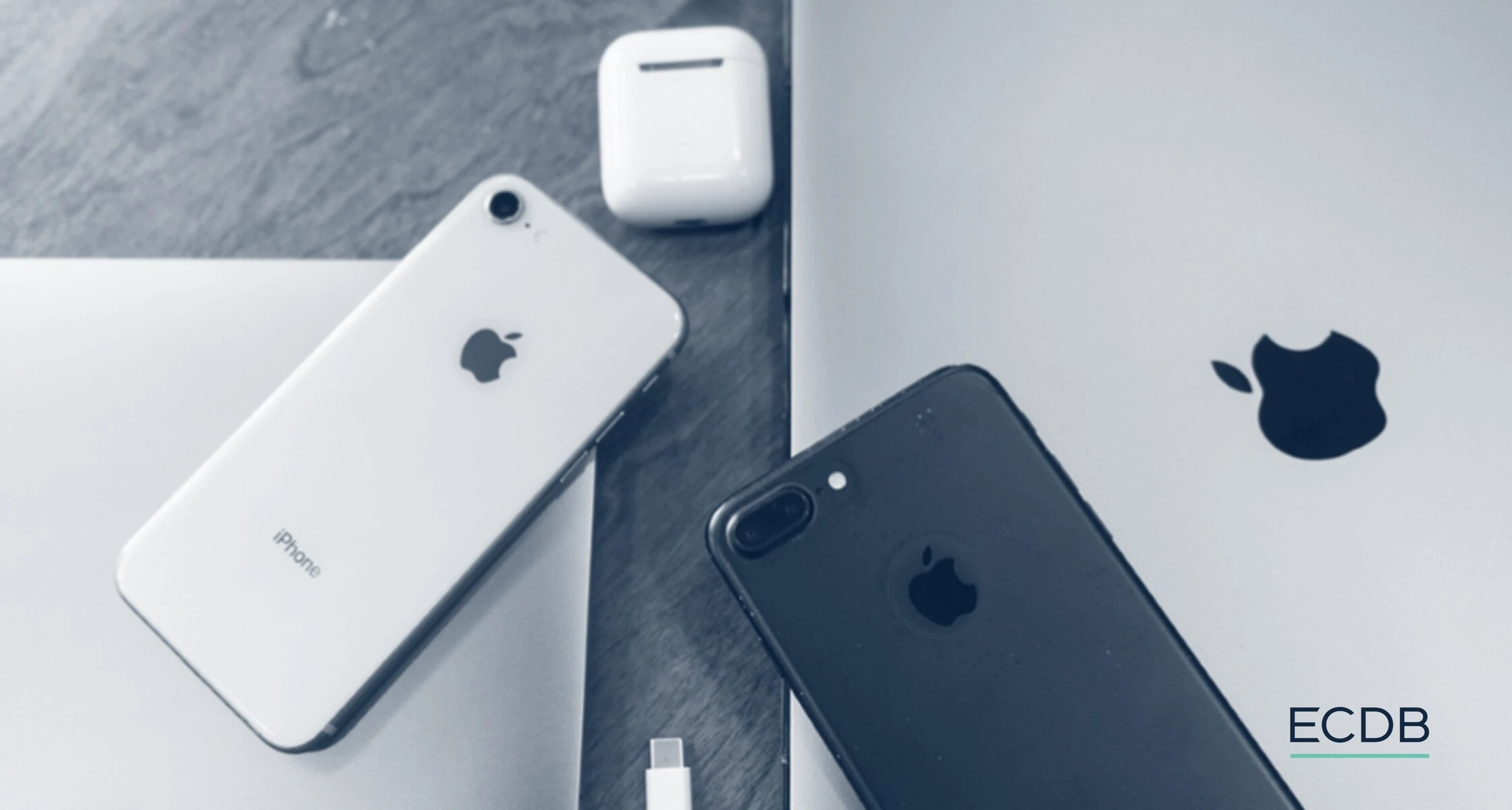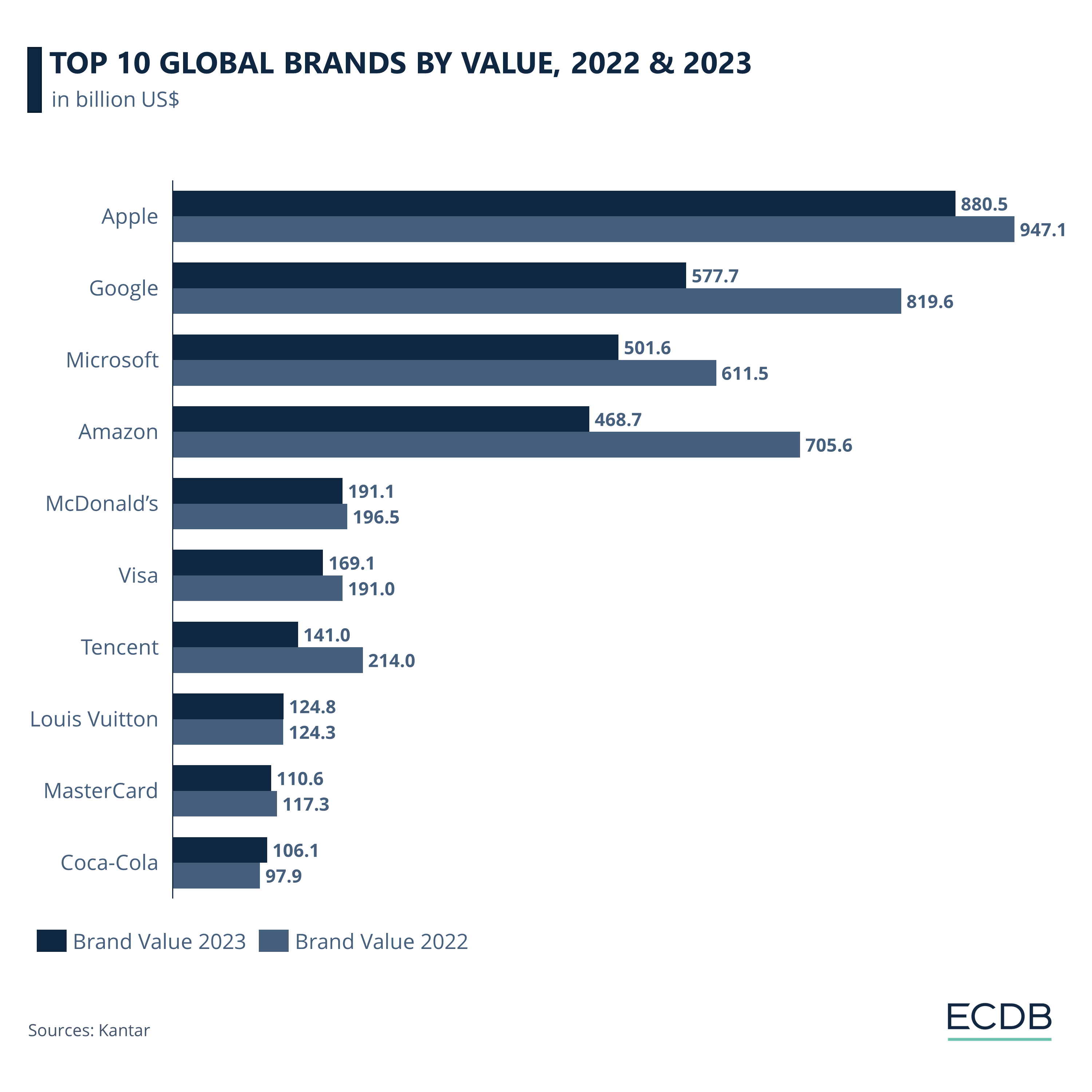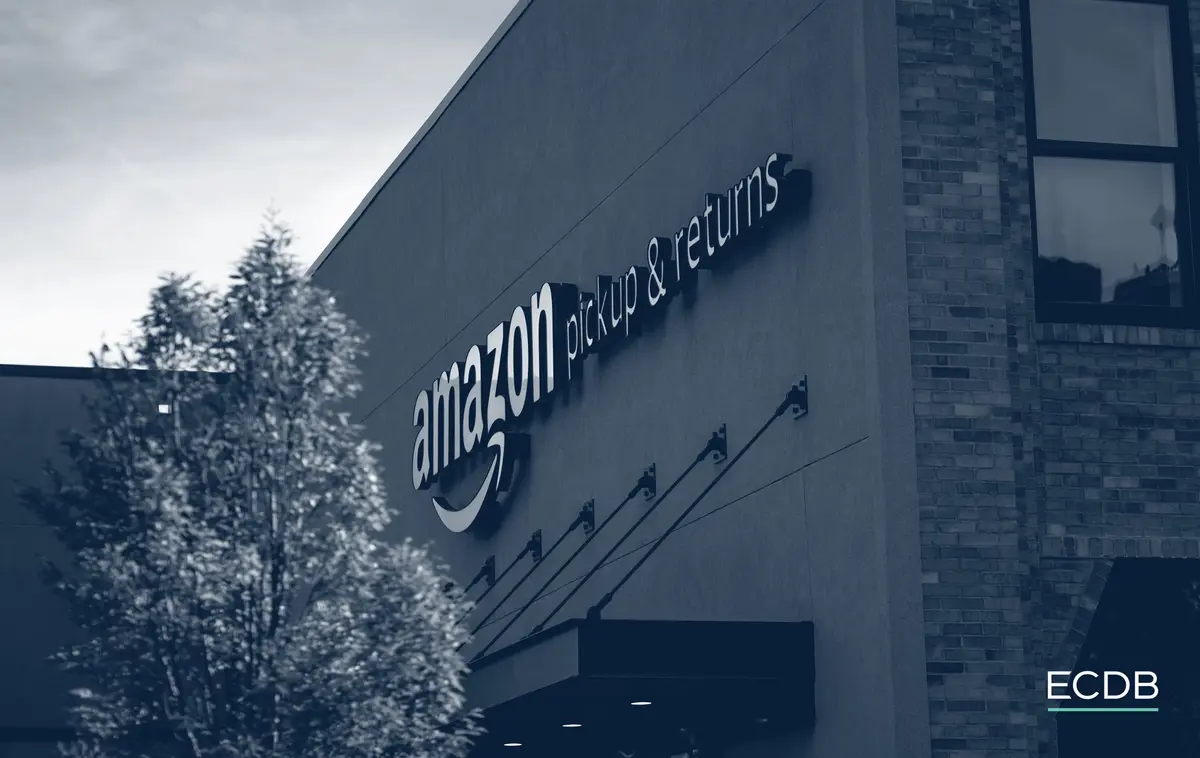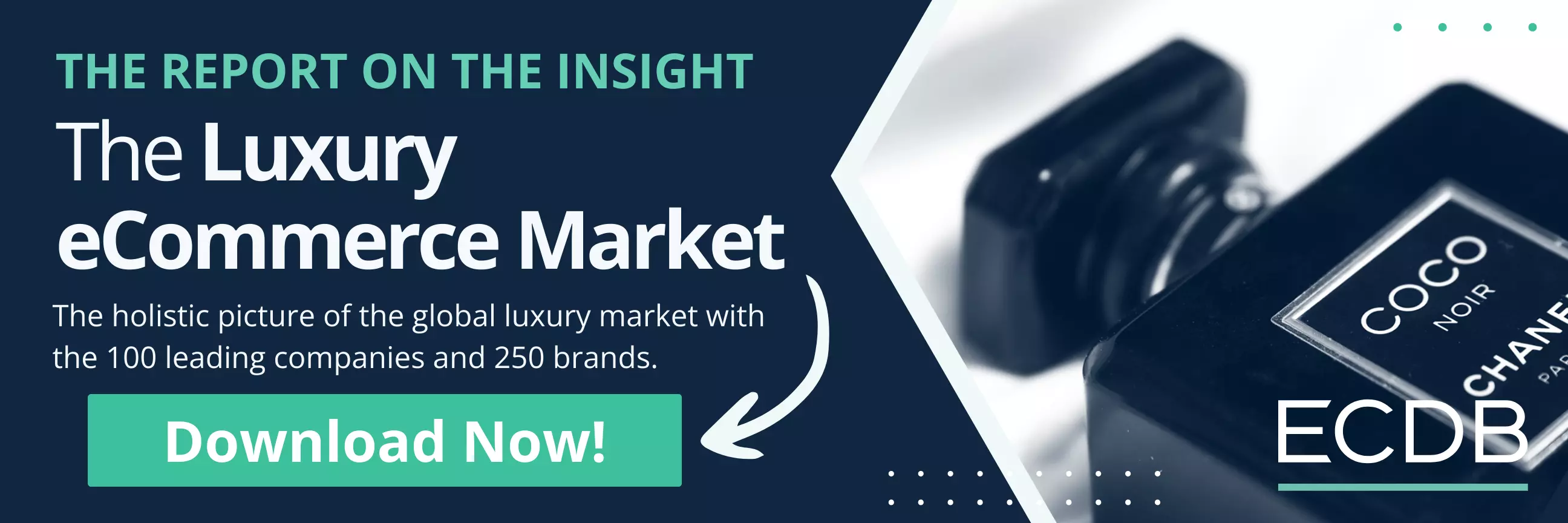eCommerce: Most Valuable Brands
Most Valuable Brands Worldwide: Amazon Struggles & Apple Dominates
The 2023 Kantar BrandZ Report offers a view of the business world, with Apple at the top and Amazon losing value, while new contenders emerge as the world's most valuable brands.
Article by Cihan Uzunoglu | March 25, 2024Download
Coming soon
Share

Most Valuable Brands Worldwide: Key Insights
Brand Rankings:
Apple maintains top position despite challenges, while Amazon sees significant decrease.
Market Insights:
World's top 100 brands approach US$7 trillion collective value despite 20% decline from 2022, highlighting continued growth and consumer perception stability.
Consumer Connections:
Establishing strong emotional ties with customers is crucial for brand growth, with effective marketing investments and strategic planning as key tools for achieving brand resilience and expansion.
Value of a company isn't just about how much they sell, but also about how much people trust and like their brand. It's measured by factors like customer loyalty, brand reputation, and the impact these have on the company's stock value.
The Kantar BrandZ Most Valuable Global Brands Report 2023 doesn't just focus on numbers; it also highlights bigger trends like sustainability and how much customers like a brand. But what are the details of 2023's brand rankings and what do they mean?
What Are the World's Most Valuable Brands?
In 2023, Apple maintained its position as the world's most valuable brand for the second consecutive year, according to Kantar's report. With a brand value of US$880.5 billion, Apple has shown resilience in challenging market conditions, justifying premium prices through positive perceptions.
While Google and Microsoft are in the respective 2nd and 3rd spots, Amazon took the 4th place with a 33% decrease in value compared to 2022. Although almost all of the companies in the top 10 lost value compared to 2022, Amazon’s loss stands out as one of the largest.
Going down the list, the likes of McDonald’s, Visa, Tencent, MasterCard and Coca-Cola make appearances, while Louis Vuitton stands out as the only luxury brand in the global top 10, climbing two spots to secure the 8th position with a brand value of US$124.8 billion. This goes to show that luxury brands continue to captivate consumers despite gradual price increases. Check out our detailed analysis of the brand for more information, based on our Luxury eCommerce Market report.

Looking at the full list, we see that Alibaba ranked 14th, which was in the 9th spot the year prior. While Walmart is placed 28th, Shein, the Chinese online fast fashion retailer whose business model influences newcomers such as Temu, joined the top 100 ranking for the first time at No. 70. Furthermore, the world's largest furniture retailer IKEA finds itself in the 86th spot, while Sony returned to the ranking at No. 99.
Apart from company rankings, it is worth noting that only 2% of the most valuable global brands are perceived as “leading” in the area of sustainability, which remains an untapped opportunity for brands as it comes with many perks for eCommerce businesses.
Total Brand Value of the World’s Top 100 Brands Achieves 47% Growth
The 2023 ranking reveals that the collective brand value of the world's top 100 brands reached almost US$7 trillion. Despite a 20% decline in the overall index compared to 2022, the top 100 maintained its long-term growth trajectory, exhibiting a remarkable 47% growth compared to pre-COVID levels in 2019.

2023 results, despite the decrease in aggregate brand value, reflect the continuation of a consistent growth trend that emerged after the global financial crisis in 2008 and persisted until the onset of the pandemic in 2020. While market conditions have proven to be volatile and influenced by global macroeconomics, consumers' perception of brands has remained remarkably stable, with the world's most valuable brands retaining their esteemed status.
Strong Connections with Consumers =
Brand Resilience
The findings from the ranking clearly demonstrate that, even in the current recession we are experiencing, it is possible to achieve growth in any industry and geographical region by implementing the right strategy that focuses on establishing and nurturing strong connections with consumers. The key takeaways for brand owners and marketers remain evident: effective marketing investments and long-term strategic thinking are essential for business growth.
Brands that consistently invest in establishing strong emotional connections with consumers are now better equipped to navigate the current volatile conditions and provide greater resilience for their shareholders. Therefore, it is crucial for brands to continue investing in brand-building, product innovation, and market diversification in order to foster growth.

Click here for
more relevant insights from
our partner Mastercard.
Related insights
Deep Dive
The Global B2B eCommerce Market: Why It Is Beneficial to Sell to Other Businesses
The Global B2B eCommerce Market: Why It Is Beneficial to Sell to Other Businesses
Deep Dive
Top 10 Online Shopping Sites in the USA: Amazon, Walmart, Apple
Top 10 Online Shopping Sites in the USA: Amazon, Walmart, Apple
Deep Dive
H&M Revenue: Online Net Sales Remain High Through 2023
H&M Revenue: Online Net Sales Remain High Through 2023
Deep Dive
Otto: Can the German Retail Company Maintain Relevance and Drive Revenue in eCommerce?
Otto: Can the German Retail Company Maintain Relevance and Drive Revenue in eCommerce?
Deep Dive
Walmart eCommerce Revenue: The U.S. Retail Giant Surpassed US$100 Billion
Walmart eCommerce Revenue: The U.S. Retail Giant Surpassed US$100 Billion
Back to main topics
